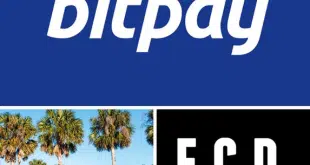By Jim Daly
@DTPaymentNews
The ATM Industry Association on Monday issued a position paper that once again calls for freedom for deployers to set variable surcharges. The Sioux Falls, S.D.-based trade group took that stance a decade ago, but the coming of EMV chip cards to the U.S. makes the surcharging issue even more important, the ATMIA says.
Currently, the global bank card networks—Visa Inc. and MasterCard Inc.—do not expressly prohibit variable surcharges, but other rules ban surcharges that would be higher for their cardholders than surcharges on other networks’ transactions, according to David N. Tente, the ATMIA’s executive director for the U.S. and Latin America. Those policies force independent ATM deployers to assess uniform surcharges for cash withdrawals despite differences in deployers’ network expenses in the form of interchange and other fees, Tente says.
Reasons for the renewed call for variable fees stem from the decline in interchange as a share of independent ATM deployers’ revenues—in ATM transactions, card issuers pay interchange to the ATM owner, whereas issuers collect interchange in payment transactions—and the coming of EMV. Interchange has been declining for years, but EMV is a new wrinkle.
EMV tends to favor the global networks over the so-called regional electronic funds transfer networks for transaction routing, according to Tente. This results in part from the EMV specification injecting an element of consumer choice for routing, he says, by requiring deployers to sometimes display screen prompts that can give consumers a choice between a global network and a PIN-debit network.
“EMV really tilts this whole boat in the favor of the global networks,” Tente says. “If there’s any problem [with the transaction], it defaults to the global network. The operators generally do not want that screen displayed.”
The coming of EMV forced the global and EFT networks to work out a so-called common application identifier (AID) that would enable the merchant or acquirer in point-of-sale transactions to direct the transaction to a PIN-debit network should they choose, as called for under the Durbin Amendment to 2010’s Dodd-Frank Act. But Durbin mainly addresses POS issues, which means routing usually “is the issuer’s choice” or a combination of issuer-network agreements, says Tente. “The ATM operators are completely left out of the process.”
Visa and MasterCard did not have any comment on the ATMIA’s position paper as of Monday afternoon.
The ATMIA predicts that if pricing can’t more closely match expenses, deployers will start pulling ATMs from some locations.
Ultimately, the ATMIA wants deployers to have the ability to direct transaction routing to their preferred networks, depending on a particular transaction’s costs and other factors. “The one thing that would solve about 90% of these issues would be for the ATM operators to have routing choice,” says Tente.
The ATMIA has met twice with Federal Reserve officials, most recently in May, to voice its concerns about ATM transaction routing. The Fed wrote the rule implementing the Durbin Amendment. Tente declined to speculate on whether the Fed will take any action, but says “I think they have a better understanding of what the issue is.”
Variable surcharging not only would benefit independent deployers, but also community banks and credit unions without big ATM networks, Tente says.
The ATM routing issue has parallels in the merchant world, where Wal-Mart, Home Depot, and Kroger have filed lawsuits accusing one or both global networks of undercutting their rights to route EMV debit card transactions to PIN-debit networks.
EMV is on ATM deployers’ minds this year. In October, deployers face a MasterCard liability shift that will make them financially responsible for counterfeit card fraud if their machines cannot read a payment card’s EMV chip.





